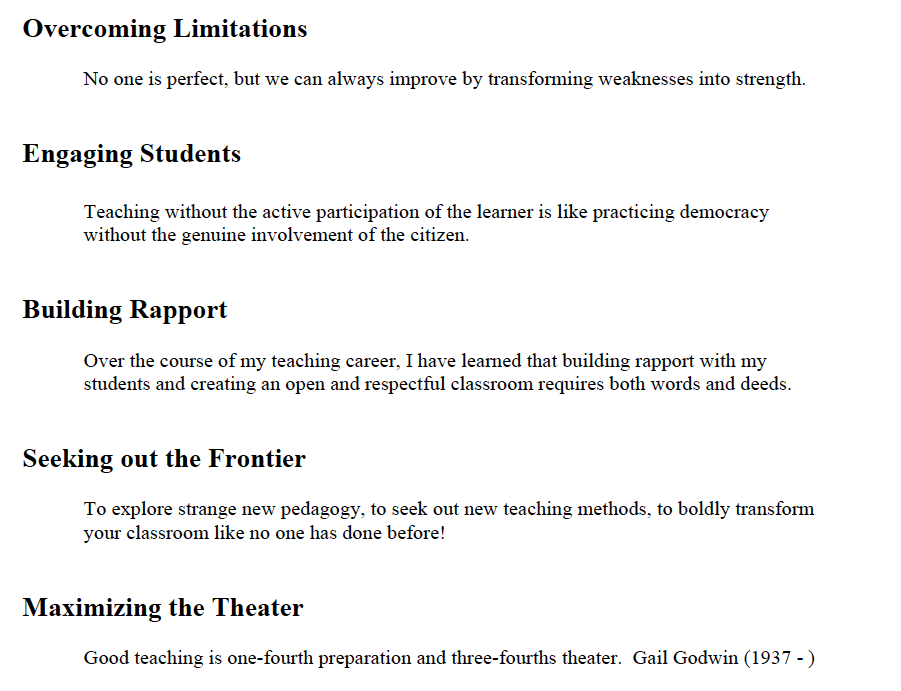Upon reflecting on my, on-the-ground, approach to classroom management, lesson planning, and instructional style, I found that I was unsparingly, and unknowingly, using what is called Cognitive-Behavioral Strategies or CBS. "CBS has its roots in psychiatry and was proven to help many people get over a number of clinically proven conditions such as OCD, anxiety and social phobia Cognitive-behavioral Strategies in the Classroom", (2014) . For example, I always encourage students to use their inner-dialogue to observe, analyse, and modify their own behaviors. At the same time, I make a point of using plenty of tangible, sensory, and psychological rewards as reinforcers i.e. tokens, totems, smiley faces and star stickers, tiny sweets, genuine smile or nod, public praise of a job well-done, etc.. which is a kind of a melange between Behavioral and Cognitive theories.
Classroom management
I found that my philosophy had its roots in my desire for my teenage daughters to receive from their educators what I provide for my students. This may sound selfish and/or self centered but in fact, it is not. I know that I have to deliver a certain standard of quality regardless of what my own family receives and I agree and accept this responsibility. However, I use this as part of one's own motivation to deliver quality standards and help develop the student as a whole, instead of merely focusing on delivering an SAT or ELA session.
Lesson planning
In terms of academia, this has helped me construct suitable exercises and activities with the abilities of my slowest student in mind i.e. how new information is presented, the desired outcome of exercises, possible obstacles that might face some students. In terms of behavior, CBS helps teachers empathize more with the students at times when they become emotionally agitated and self restraint is key.
Instructional style
As a rule, I try to keep instructional time at minimum to give more chance to students to do their work uninterrupted and for me to observe their performance and behavior. When instructing, I try to build or relate previous knowledge to the topic at hand. This helps establish common grounds and some sort of agreement or buy-in early on in the lesson where I could scaffold and move forward. I also tend to incorporate humor and/or inside jokes adequately to break the sometimes rigid material. Sometimes during instruction, I suddenly pause and seem to look for someone to finish my sentence to encourage engagement and to retain attention.
Conclusion
The reason I opted to write this brief comment after I had already finished crafting a mind map was that I wanted to further explain my stance more clearly. Personally, I believe that we are all students in the school of life till the last day of school. In other words, I actively look for the lesson in every situation, planned or unplanned, whether to learn from it myself or to point it out to at least one student. When I started this course I knew there was a lot to learn but did not actually realize how ignorant one is. Besides Behavioral and Cognitive theories, there is a more recent theory that was at play without being fully aware of it.
References
- Cognitive-behavioral Strategies in the Classroom. (2014). Retrieved 17 September 2020, from https://education.ufl.edu/behavior-management-resource-guide/2014/07/14/cognitive-behavioral-strategies-in-the-classroom/

No comments:
Post a Comment